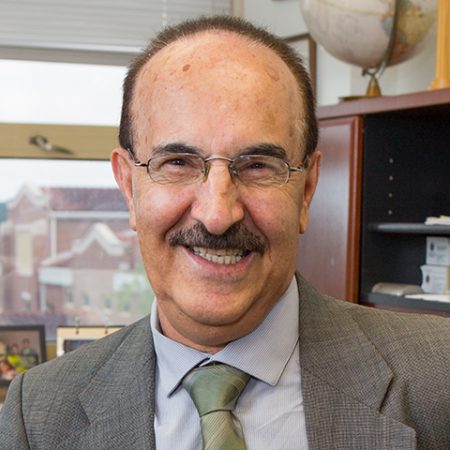
In the best tradition of conducting scientific research to simply help people live better lives, College of Human Sciences Professor Bahram H. Arjmandi has simplified the mission of Florida State’s Center for Advancing Exercise and Nutrition Research on Aging (CAENRA). His reasoning is twofold — to keep researchers focused on the “why” of research and to signal to the public that this center will be a reliable place to receive a wealth of practical advice for successful aging.
“With our new mission statement, ‘To understand the relationship between exercise, nutrition and healthy aging,’ we come straight to the point so the general public can easily understand what we’re about,” said Arjmandi, the center’s director. He intends to make public outreach a new priority as well.
Arjmandi admits that the previously worded mission was a statement that only a researcher could love.
“It talked about ‘developing translational research across disciplines and levels of biological organization,’ which is not the way most people talk,” he said.
Along with its newly simplified mission, Arjmandi has broadened the center’s focus.
In addition to continuing the use of magnetic resonance imaging to analyze the functional decline in aging bone, brain and muscle cells, the center also will work to develop unique exercise and nutritional interventions to improve quality of life and longevity in spite of the natural declines and chronic diseases that occur among senior adults.
The center’s five core research areas are musculoskeletal health and obesity; cardiovascular disease; cognitive function and brain health; women’s health; and cancer prevention and survivorship.
In terms of collaborative research, it will bring together scientists from within the Florida State community or around the world who are interested in conducting aging research, including investigations of exercise and nutrition interventions for chronic conditions such as osteoporosis and osteoarthritis, cardiovascular diseases, sarcopenia and sarcogenic obesity, cancer, gastrointestinal health and brain degenerative diseases.
“We intend to promote healthy aging by offering practical recommendations from our interdisciplinary research findings to clinicians and the public,” Arjmandi said.
To learn more, visit www.chs.fsu.edu/CAENRA, or follow CAENRA on Facebook.



